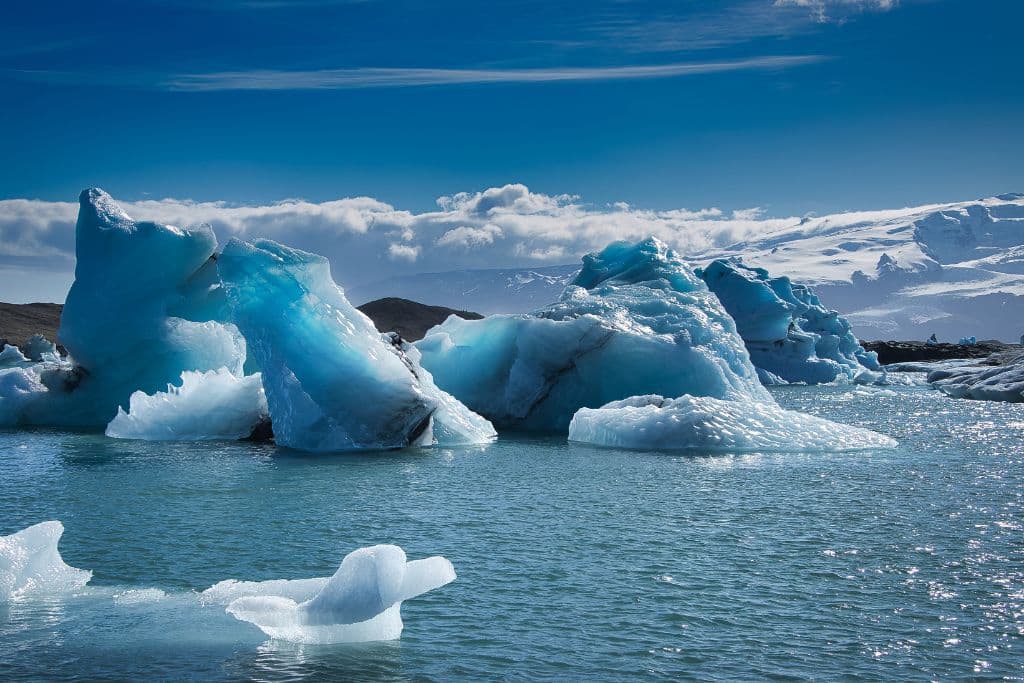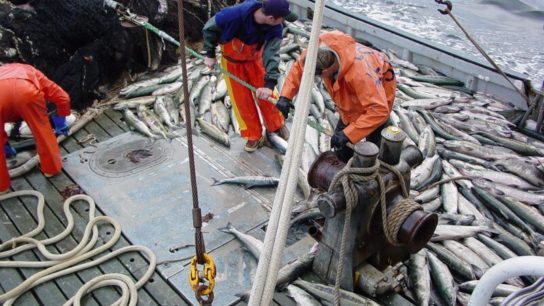The devastating implications of changes in deep ocean currents for the world’s climate could last for centuries, scientists have warned in a new report.
—
Rapidly melting Antarctic ice will cause a slowdown of global deep ocean currents by mid-century, leading to the acceleration of sea level rise and changes in the world’s climate that will be felt for centuries, a team of Australian scientists has warned.
The Meridional Overturning Circulation of oceans is a component of ocean circulation driven by the movement of colder, denser water toward the sea floor near Antarctica that helps deliver heat, carbon, oxygen, and vital nutrients across the globe. But as fresh water from the ice cap melts, sea water’s salinity and density decrease, slowing the downward movement.
According to the new research study, published Wednesday in the scientific journal Nature, deep ocean water flows from the Antarctic could slow down by 40% in three decades’ time if the current rate of greenhouse gas emissions continues. The collapse of ocean circulation, experts say, will have devastating consequences and long-term impacts on weather patterns, sea levels, and marine ecosystems and it will permanently affect the ocean’s ability to absorb carbon dioxide.
Dr Adele Morrison, who contributed to the report, explained that a slowdown of the southern overturning could also have an impact on Antarctica itself.
“The … implication it could have is a feedback on how much of Antarctica melts in the future. It opens a pathway for warmer waters which could cause increased melt, which would be a further feedback, putting more meltwater into the ocean and slowing down circulation even more,” she told the BBC.
You might also like: Two-Thirds of World’s Glaciers Set to Disappear by 2100 Under Current Global Warming Scenario: Study
But the Antarctic isn’t the only region at risk.
The current global warming rate is already much higher than the 1.5C mark set out in the Paris Agreement, which scientists say is the only chance we have to avoid the worst impacts of climate change. Indeed, surpassing it risks crossing several tipping points of climate change, critical thresholds in a system that, when exceeded, can lead to a significant and often irreversible change in the state of the system.
Around 10% of the world’s land surface is currently covered by glaciers, which store 70% of the Earth’s freshwater. Melting glaciers contribute significantly to sea level rise, threaten water supplies for up to 2 billion people, and increase the risk of natural hazards and extreme weather events such as flooding.
According to a study published in January, 68% of the world’s glaciers are set to disappear at the current global warming rate, with at least half of the loss taking place in the next 30 years. By 2100, central Europe, western Canada, and the US will have no glaciers left. Even under the most optimistic scenario of 1.5C of global warming, 49% of the planet’s glaciers – not including the Greenland and Arctic ice sheets – would still melt completely.
You might also like: The Tipping Points of Climate Change: How Will Our World Change?


















